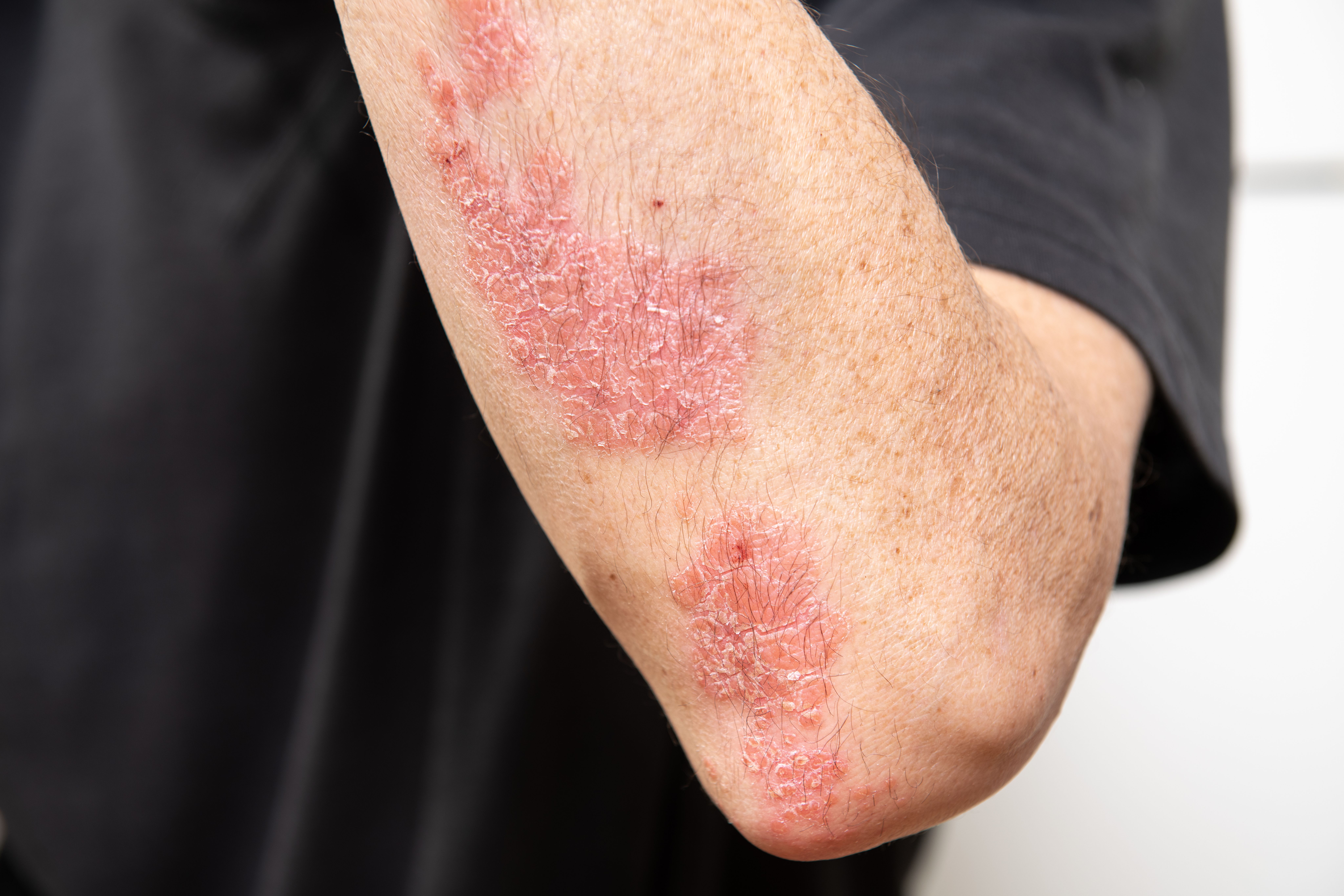- Center on Health Equity & Access
- Clinical
- Health Care Cost
- Health Care Delivery
- Insurance
- Policy
- Technology
- Value-Based Care
Psoriasis Linked to Lower Fertility Rate, Increased Risk of Pregnancy Loss
Lower fertility rate and increased risk of pregnancy loss were identified among women with moderate to severe psoriasis, according to a new study.
In a study comparing fertility rates and obstetric outcomes of pregnancies in female patients with or without psoriasis, lower fertility rates and higher risk of pregnancy loss were seen at greater rates among patients with moderate to severe psoriasis.
This population-based cohort study is published in JAMA Dermatology.
“In this cohort study we aimed to investigate fertility and obstetric outcomes in patients with psoriasis when compared with the age- and practice-matched population using population-based electronic health records (EHRs),” wrote the researchers of the study. “The objectives were to explore the annual trends in fertility rates in female patients with psoriasis, investigate the association between psoriasis and birth outcomes when compared with matched comparators without psoriasis, and identify the association between psoriasis and adverse pregnancy outcomes.”
Psoriasis | image credit: pimentos – stock.adobe.com

The data included in this study came from the UK Clinical Practice Research Datalink GOLD database for 1998 to 2019, linked to a pregnancy register and Hospital Episode Statistics. Over 6 million patients were identified who were of the childbearing ages 15 to 44 years.
Patient demographics for age and quintile of practice-level deprivation were included in the study, as well as lifestyle factors, such as body mass index, alcohol intake, and smoking status. Each patient with psoriasis (n = 63,681) was matched with 5 patients by age (n = 318,405) from the same general practice. The median (IQR) age was 30 (22-37) years, and the median follow-up was 4.1 (1.7-7.9) years.
Fertility rates were defined as the number of pregnancies per 100 patient-years, with the outcomes of each pregnancy screened to identify obstetric outcomes.
In total, there were 4,224, 536 female patients aged 15 to 44 years in the GOLD database for 1998 through 2019. In addition, there were 3252 (5.1%) patients with moderate to severe psoriasis during follow-up, and 561 were categorized as having moderate to severe psoriasis on the index date.
Patients with moderate to severe psoriasis had lower fertility rates (rate ratio [RR], 0.75; 95% CI, 0.69-0.83; P < .001), and pregnancies in patients with psoriasis had a higher risk of pregnancy loss (odds ratio [OR], 1.06; 95% CI, 1.03-1.10; P < .001) compared with patients without psoriasis.
Patients with psoriasis also had an increased risk of venus thromboembolism (OR, 1.31; 95% CI, 1.07-1.59; P = .008) before adjusting for potential confounding factors. After adjustment, there was no statistically significant difference in the odds of venous thromboembolism (adjusted odds ratio [aOR], 1.12; 95% CI, 0.91-1.37; P = .28). However, the researchers found no increase in the risks of antenatal hemorrhage, preeclampsia, or gestational diabetes.
Additionally, pregnancies in patients with psoriasis were less likely to end in live birth (OR, 0.91; 95% CI, 0.88-0.93; P < .001), and patients younger than 20 years (OR, 2.04; 95% CI, 1.94-2.15; P < .001) and aged 20 to 24 years (OR, 1.35; 95% CI, 1.31-1.40; P < .001) had a higher risk of pregnancy loss compared with patients aged 25 to 34 years.
The researchers acknowledged some limitations to the study, including using surrogates for moderate to severe psoriasis due to the lack of direct measures of psoriasis severity. Additionally, due to the low fertility rate, there was a limited number of adverse pregnancy outcomes in patients with moderate to severe psoriasis, even though the researchers used a large EHR database.
Despite these limitations, the researchers believe the study suggests lower fertility rate and pregnancy loss may be associated with moderate to severe psoriasis, and they they advocate for increased awareness and management to reduce this risk.
“To avoid miscarriage and its adverse consequences, further studies should evaluate the effects of better management of psoriasis and close monitoring during pregnancy on pregnancy loss,” wrote the researchers. “In particular, patients with psoriasis were more likely to have comorbidities that may be related to poor pregnancy outcomes, and hence increased emphasis of managing comorbidities as part of the routine management plan is also warranted.”
Reference
Chen T-C, Iskandar IY, Parisi R, et al. Fertility trends and adverse pregnancy outcomes in female patients with psoriasis in the UK. JAMA Dermatology. 2023;159(7):736. doi:10.1001/jamadermatol.2023.1400
